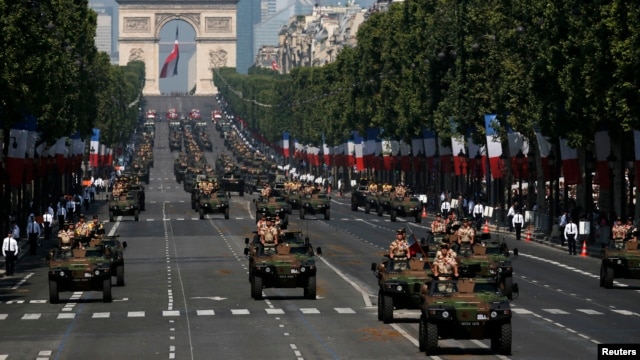There is typically a large military parade. This year, according to a Voice of America article, close to 5,000 troops, including U.N. soldiers in blue berets and servicemen from 13 African countries marched past the presidential stage, led by a Malian officer, drawing attention to France's role in liberating the African country's north from Islamist and other insurgent groups.
Click on image for full picture
 The traditional military parade on the Champs Elysees (photo credit to Reuters)
The traditional military parade on the Champs Elysees (photo credit to Reuters)Click on image for full picture
 Outside of the capital, small town celebrations hold parades and outdoor food events, similar to rural towns everywhere. (photo from http://francephotosfrance.wordpress.com)
Outside of the capital, small town celebrations hold parades and outdoor food events, similar to rural towns everywhere. (photo from http://francephotosfrance.wordpress.com) Teatree's musing pulls him back to the late 1700's when both the US, and France established their independence in different circumstances - just two countries that come to mind, but reflecting perhaps some growth in terms of governance. Just after the Second World War, there was a spate of new independent countries (India leading the way), from empires exhausted and financially drained by two wars in 20 years. In the early 1960s, there was another surge, this time centered in Africa, where new African nations from former colonial status, though their boundaries continue to bedevil their development. The next surge that comes to mind was in 1989-1991 when independent nations emerged from their puppet-like status under the collapsing Soviet Union.
Perhaps Egypt, Syria and other Arab nations will be able to look back to the current period as the latest surge, when they too begin to fitfully and painfully move forward to newer and better ways of governance ...

No comments:
Post a Comment